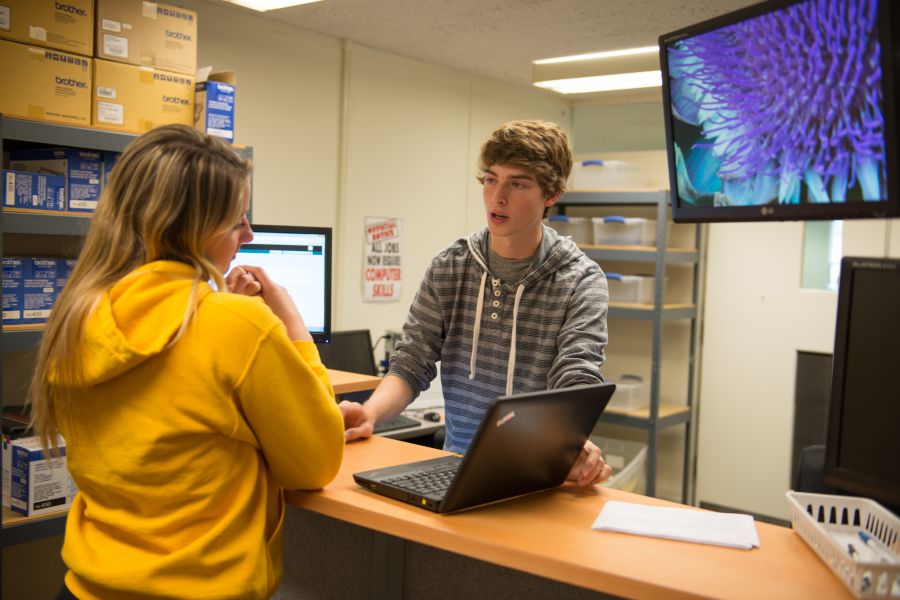Originally published as Big perks for University High School tech support internship at eSchools.com on April 4, 2014.
Are you struggling to respond to student and faculty technology issues in a timely manner? Are expensive repairs depleting your tech budget? If your school has a one-to-one initiative, a Bring Your Own Device policy or even multiple computer labs, a student-staffed technology help desk may be the answer.
When University High School rolled out a one-to-one laptop program four years ago, there were fears that supporting 620 student computers would overwhelm the single full-time IT administrator. While the district could have purchased broad warranty coverage or contracted for repairs, these costs would have pushed the total cost of ownership beyond budget. Instead, U-High elected to recruit and train six student interns to provide front-line tech support.
Before the school year begins, student interns are trained in software troubleshooting, hardware repairs, and professionalism. During the year, each intern covers one hour at the help desk, either before, during, or after school. Most help desk support cases are minor, such as resetting passwords or installing printer drivers. However, interns are authorized to perform major hardware repairs when needed. Broken screens and drop damage are the largest problems encountered, and currently occur a few times per month.
Most students are honest about the cause of hardware problems, though detective work is sometimes required. One computer suddenly had a host of problems, from corrupted hard drive data to memory and motherboard faults. The help desk interns were baffled, until the computer’s owner was overheard talking about cooking the computer in the microwave oven.
“We still don’t know why she did it, but that did answer our technical questions,” said faculty help desk mentor Cory Culbertson.
U-High charges students at cost for any repair resulting from damage. The help desk stocks repair parts and maintains a small stock of replacement computers, but does not issue loaner computers.
“Our goal is fix software problems on the spot, and hardware problems the same day,” said Culbertson. “In fact, most of the time we can get major repairs done in an hour or two.”
He notes that the help desk has been so effective that the manufacturer’s warranty service is not an attractive proposition.
“By the time we pay to ship a machine and wait for service, we could have saved ourselves both time and money by doing it here,” Culbertson said.
As the school year progresses, monthly staff meetings allow time for additional training and addressing tougher tech support issues. If there is a lull in support cases, interns sometimes take on other projects, such as rebuilding servers or testing new software. Interns earn course credit for the program, and many of the graduating seniors have gone on to pursue technical fields. The help desk experience also makes them strong candidates for paid internships.
The help desk originally used a desk in the library media center, but has since grown into a space that previously housed the school’s servers. The new space allows for better storage of tools and parts, and is more accessible to other students.
“We want to make it easy for students to come to us when they have tech problems,” says Culbertson.
Surprisingly, when the school upgraded its computers this year, a new problem surfaced: keeping the interns busy.
“Our previous computer model was quite a bit more fragile, and we had a steady stream of work to do,” Culbertson said. “This model is much more durable, and the students are learning how take care of the computers. My biggest challenge right now is keeping the help desk interns from getting bored.”
Overall, that is not a bad problem to have.

